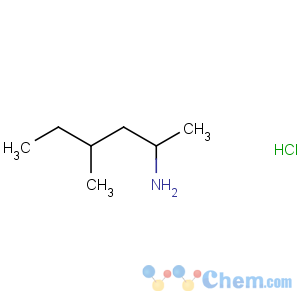You are here:
HomeProducts 1,3-dimethylpentylamine hydrochloride
1,3-dimethylpentylamine hydrochloride
-

Molecular Structure
Detailed Description
1,3-dimethylpentylamine hydrochloride
Synonyms:Methylhexanamine,dimethylamylamine,methylhexamine,DMAA
Product Name:Methylhexanamine,dimethylamylamine,methylhexamine,
Alias:1,3-dimethylpentylamine hydrochloride,2-amino-4-methylhexane hydrochloride
CAS Registry Number:13803-74-2
Molecular Formula:C7H17N.HCl
Molecular Weight:151.68
Appearance:White Crystalline powder
Grade:Food Grade
Grade:Pharmaceutical grade
Methylhexanamine (trade names Forthane, Geranamine) or methylhexamine, commonly known as 1,3-dimethylamylamine (1,3-DMAA) or simply dimethylamylamine (DMAA), is an indirect sympathomimetic drug invented and developed by Eli Lilly and Company and marketed as an inhaled nasal decongestant from 1944 until it was voluntarily withdrawn from the market in 1983.
A large number of supplements focusing on fat loss and workout energy (thermogenic or general-purpose stimulants) now use the ingredient in concert with other substances such as caffeine, a combination similar to the combination of ephedrine and caffeine.
Methylhexanamine-containing supplements sometimes list "geranium oil" or "geranium extract" as a source of methylhexanamine. However, geranium oils do not contain methylhexanamine, and the methylhexanamine in these supplements is added in the form of synthetic material.Recent studies have shown that DMAA is found in some types of geraniums.
Some products claim that dimethylamylamine naturally comes from rose geranium oil. Supplements that contain this ingredient sometimes list rose geranium, geranium oil, or geranium stems on the label. However, laboratory analysis shows that this drug probably does not come from this natural source. It is thought that these manufacturers have artificially added this drug to the supplement rather than obtaining it from a natural source. Dimethylamylamine is considered a drug in Canada is not permitted in dietary supplements or natural health products.
Many athletes take dimethylamylamine to improve performance. However, dimethylamylamine was added to the World Anti-Doping Agency’s prohibited substances list for 2010. Therefore, competitive athletes should avoid taking it.

- 1,3-dimethylpentylamine hydrochloride




